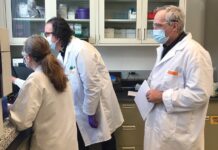PROVIDENCE – Over the past decade, a new report shows, research and development technology startups grew 47 percent, positioning themselves as major national economic drivers.
According to Washington, D.C.-based policy think tank Information Technology & Innovation Foundation, tech startups make up a relatively small share of business in the economy overall. They do, however, make outsized contributions to growth in terms of jobs and productivity, as well as innovation and competitiveness.
ITIF President Robert Atkinson, co-author of the report, calls tech startups “star players” in the economy.
“They offer better-paying, longer-lasting jobs than other startups, they innovate more, and they are more likely to export their goods and services, which makes a disproportionate contribution to growth,” he said in a statement. “There is a false impression that because some technology-driven companies have become hugely successful, there is now no room for new entrants. But that’s clearly not the case. Technology and innovation-driven startups are thriving.”
The report found there has been entrepreneurship in 10 tech-based industries from 2007-2016 at national, state and congressional-district levels.
Massachusetts had the most employment in tech-based startups as a share of its total workforce, at 2.4 percent in 2016.
California had the most tech-based startups of any state, more than 30,000.
Other report findings: tech industries have the highest job multipliers, with one tech-based job creating five more jobs in other industries. Wage growth among tech-based startups was higher than overall U.S. wage growth in the study period – 20 percent versus 3 percent. Also, on average, venture-capital-based startups showed faster employment and sales than their non-VC-backed counterparts by 40 percent.
Atkinson notes policymakers should nurture these economic drivers with the correct tax policies, regulations, research incentives and market conditions. Improved science, technology, engineering and mathematics skills and better federal technology-transfer policies will also enable startups to grow faster, the report states, according to an ITIF news release.
A few of the specific recommendations to policymakers in the report:
- Amend Section 382 of the tax code so small companies can carry net operating losses forward and continue to attract investors.
- Create an Office of Innovation Policy as part of the Office of Management and Budget.
- Give about $325 million over five years to the National Science Foundation to go toward higher learning institutions that dramatically hike the rate at which freshmen STEM students graduate with STEM degrees.
- Set up an automatic set-aside program allocating a modest amount of federal research budget money to tech-commercialization activities.
The full report can be viewed here.
Susan Shalhoub is a PBN contributor.












